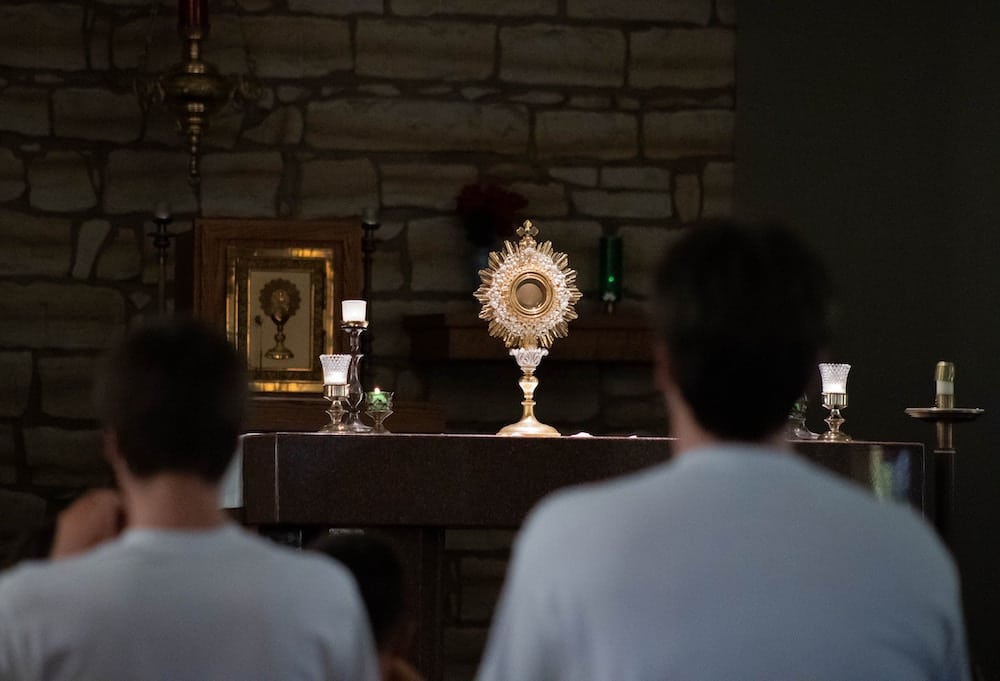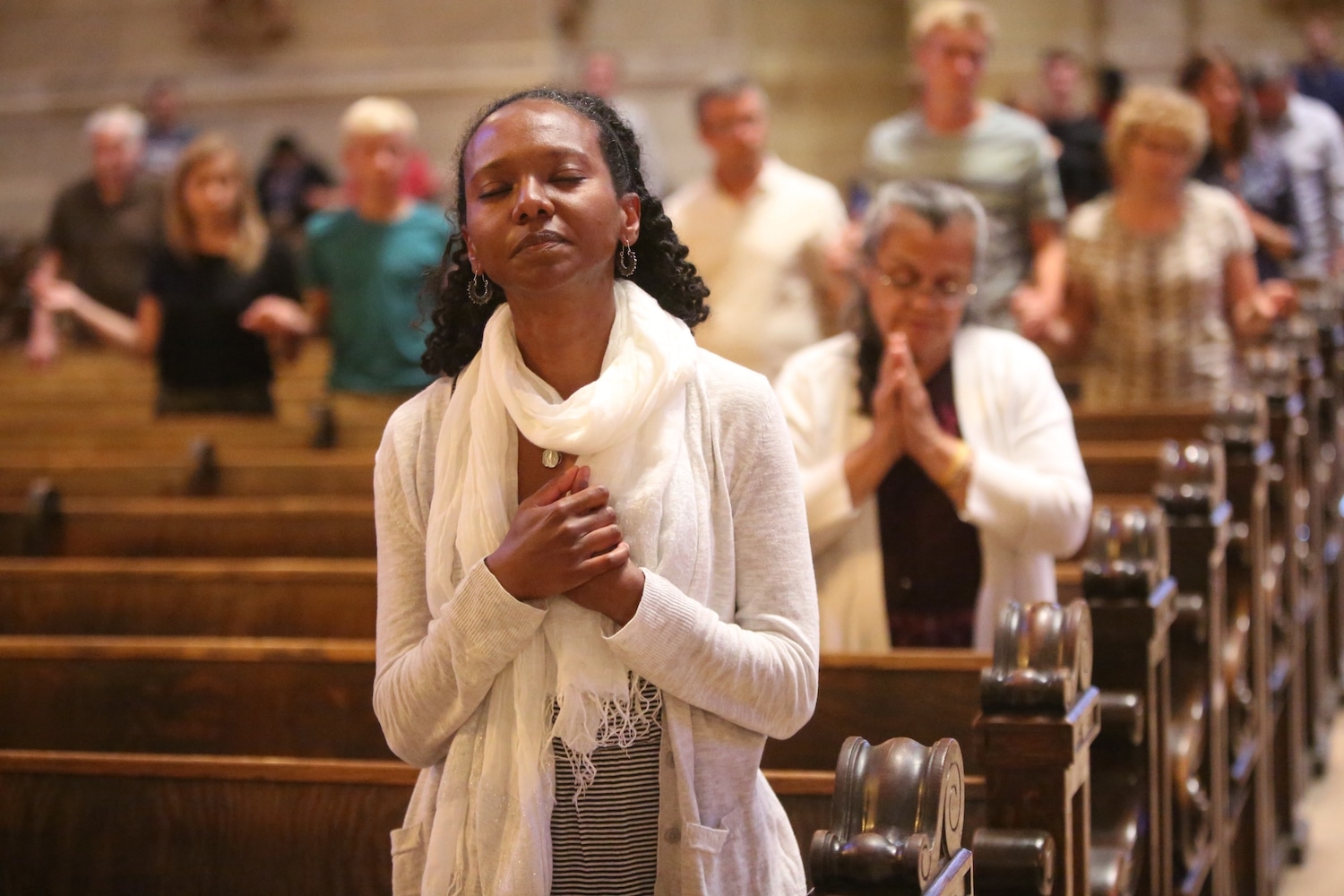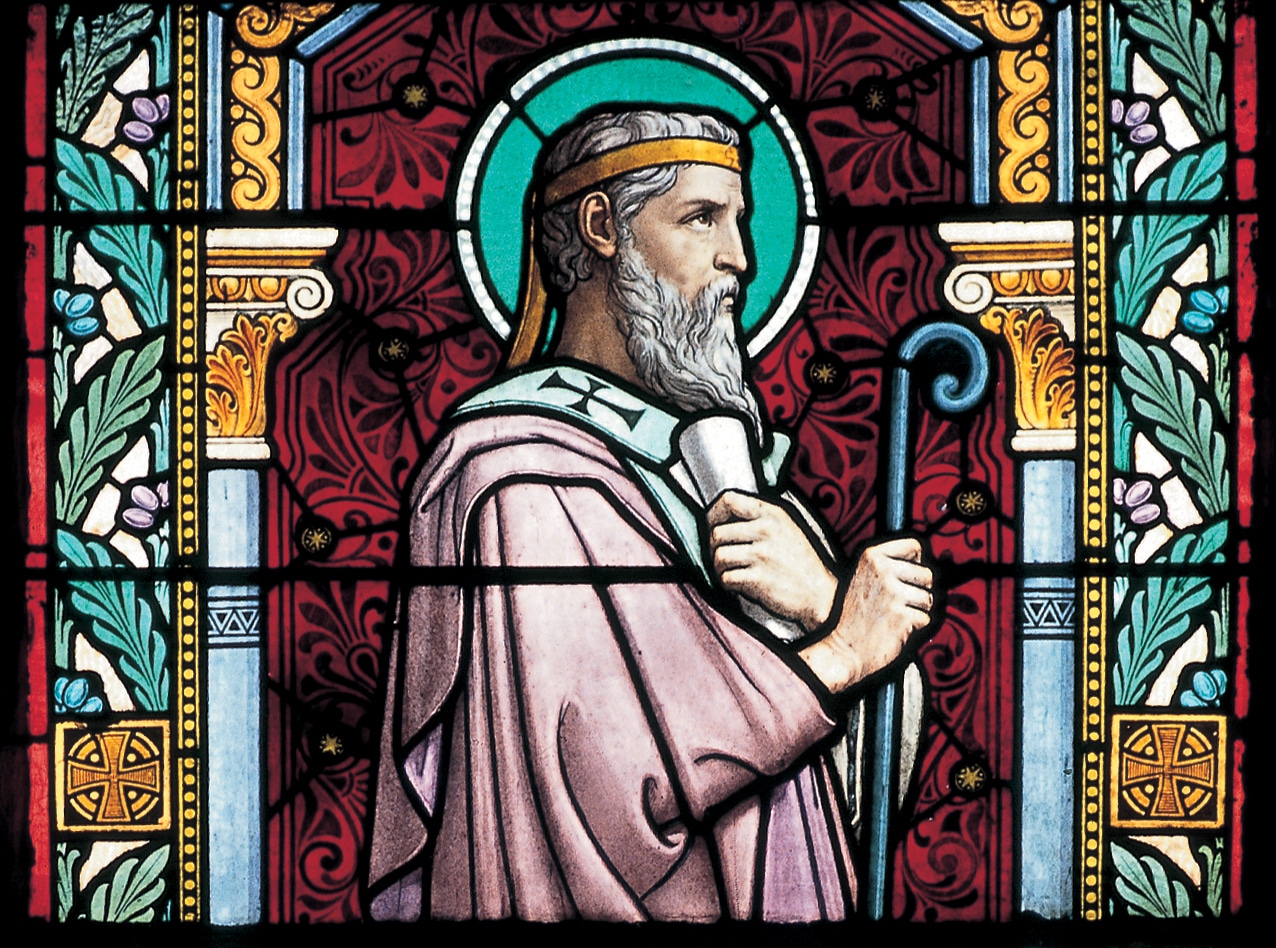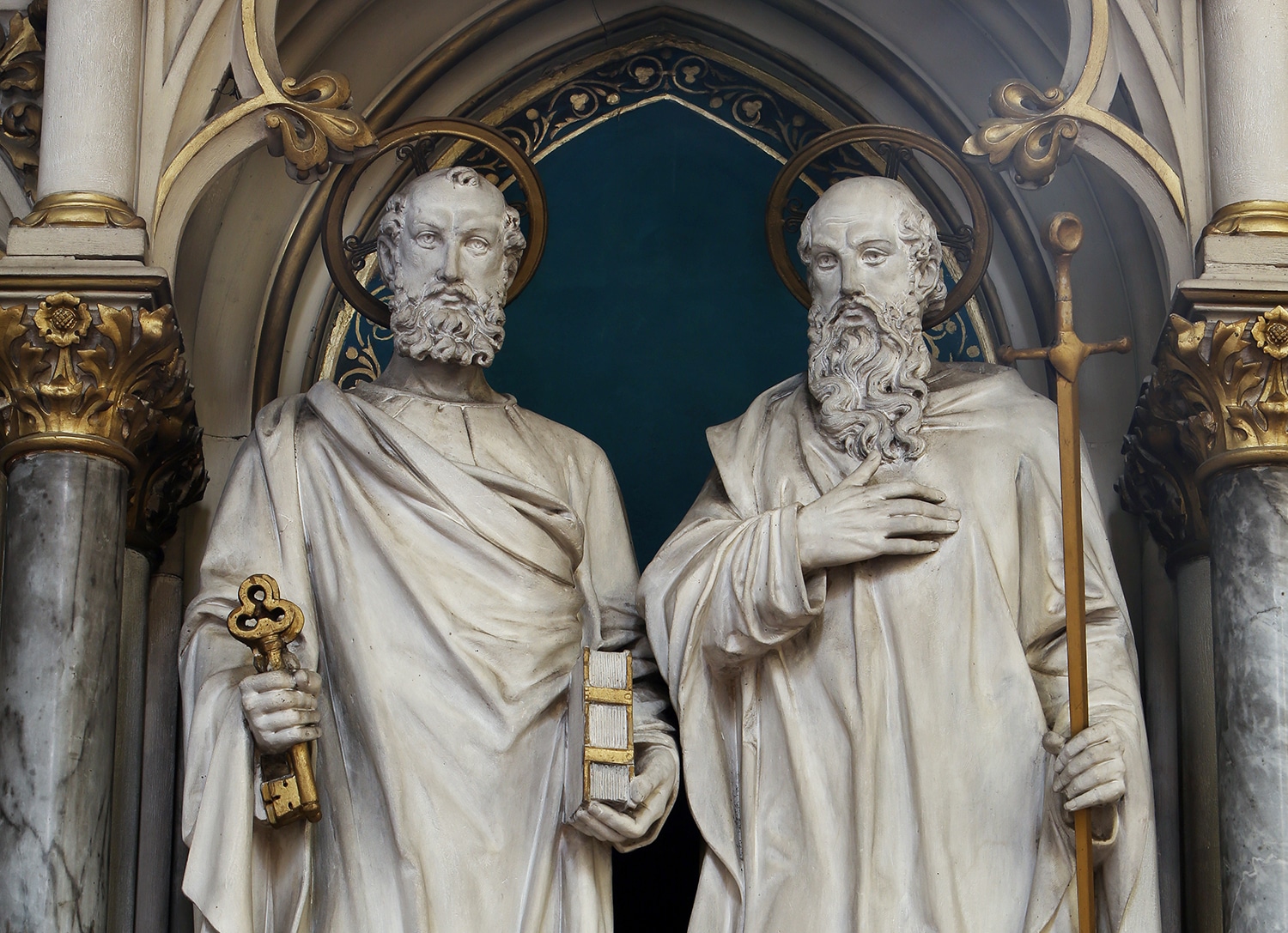I listened to a podcast episode in which a Catholic man was sharing a story about how he started his company. He spoke passionately about “what God said” to him and how “God told him what he had to do.” And something about it really bothered me.
I turned the podcast off in order to consider what it was that was pricking at me. It was more than the fact that I have not had an experience like the one he was sharing; it was as if the experience he was sharing had no resonance with my life of faith at all, and that was disturbing. What was wrong here? The ease with which this man talked about his experience made me doubt its truth, and it made me wonder: How are Catholics to enter into the Eucharistic Revival if we can’t really talk fruitfully about our encounters with the Eucharist?
Examples of hearing God
There is something incommunicable about God’s work in the human heart. I think that is one of the most important and least appreciated things in our current discussions of synodality, the Eucharistic Revival and the work of the Holy Spirit in the Church today in general. If you can tell me, easily and in a pithy phrase, what God is doing in you and in your life right now, then, frankly, I do not trust what you are saying.
Mother Teresa had a profound moment with the Lord while she was on a train. After that moment, she left a comfortable life as a teaching sister in order to devote herself to Jesus in his “distressing disguise” of the poorest of the poor. Her moment on the train led to the Missionaries of Charity. We do not know what happened on the train. We only know that Jesus told her in some manner, “I thirst,” and the rest is history. Bishop Andrew Cozzens of Crookston, Minnesota, in a recent speech at the Catholic Media Conference, shared this segment from a letter Mother Teresa wrote to her sisters:
“I worry some of you still have not really met Jesus — one to one — you and Jesus alone. We may spend time in chapel — but have you seen with eyes of your soul how He looks at you with love? Do you really know the living Jesus — not from books but from being with Him in your heart? Have you heard the loving words He speaks to you? Ask for the grace, He is longing simply to give it.”
She was asking her own sisters — women who had given up everything to serve the poor — if they had encountered Jesus lately, one on one, in their hearts. So that is not something that the missionary sisters spoke about with each other every day, as you might be tempted to think about religious. They do not pick up their breakfasts and chat about their contemplations.

St. Teresa Benedicta of the Cross (Edith Stein) was a German philosopher, a phenomenologist who studied under Edmund Husserl. She was born Jewish, then considered herself an atheist. One night, she picked up St. Teresa of Avila’s “Book of Her Life,” and she could not stop reading. “This is the truth,” she said to herself. But what was it about the book, or about St. Teresa, that had this effect on Edith? How did she encounter Jesus as Lord through these words? We do not know; she never told us.
In arguably the most famous of all conversion stories, as he weeps and repents, St. Augustine recounts hearing, “Take up and read” (referring to the Bible), and the word of God banishes his doubts in some sort of definitive way. “No further would I read; nor needed I: for instantly at the end of this sentence, by a light as it were of serenity infused into my heart, all the darkness of doubt vanished away” (Confessions, Book VIII). How did this happen? Well, we don’t know. Augustine immediately shares this experience with his friend, Alypius, who, edified himself by what Augustine had been through, responds with joy, and they go to tell his mother, Monica, that her son is a believer. In a book full of pathos and drama, in which many of Augustine’s innermost thoughts are revealed, this particular passage is notably muted.
What to keep to yourself
What do these examples suggest? That there is a limit to what can be communicated to others about graces we receive. Many Protestants have what they call their “testimony,” which they stand ready to give at any time (a friend of mine was asked to give hers at the dinner table the first time she met her boyfriend’s family!). I am fully in support of that, since we must always be prepared to give “a reason for our hope,” as St. Peter says (1 Pt 3:15). In order to bring Christ to others, we must be able to communicate the difference that he makes in our lives. But I think that sharing our “God story” can be done only within limits. We can share the contours of the experience — the effects of grace — up to a point. Then you come to a boundary where what happens is only between God and the soul.
Trying to put into words what lies in that area leads to one of two problems: Either it sounds hokey, cheesy, silly, or it sounds unbelievable, in a kind of unattainably holy way. Or, sometimes, even worse — it is both cheesy and unattainable, such as in the case of the podcast I was listening to. While this man was making claims about God speaking to him, I felt embarrassed for him, in addition to being doubtful about the content of his “revelation.” “Shhhhhhhhh,” I wanted to say to him, “Keep that to yourself.” Many vocation stories also walk this line: People want to know how a person discerned a call to religious life or the priesthood, but there’s only so much the person can say. What they share never seems enough to justify the choice to give up everything and follow Jesus in such a radical way. At some point, I suspect, the best thing to say is, “It’s a mystery.”
An opportunity for revival
I am quite an open person. There are very few things that I think should not be brought out into the open, discussed, shared and processed. But when it comes to sacred things, there is a way in which talking about them too much fails to do the very thing you would want it to do — namely, draw the other person closer to the Mystery. St. Andrew said to his brother, Cephas, “We have found the Messiah” (Jn 1:41). He did not give a lengthy explanation of what he and John did when they spent time with Jesus the day before. Instead, Andrew just said, “Come and see.”

This is what the Eucharistic Revival must do: Invite our friends and neighbors to come and see. We cannot communicate that which is deepest within us, but we can offer others the opportunity to experience it themselves. We can increase the number of times we, ourselves, seek out the presence of Christ in the Eucharist, giving silent witness by our presence in a parish Church or adoration chapel. I am edified every time I go to a local adoration chapel by the number of faithful there, usually my Spanish-speaking brothers and sisters, sometimes lying face down before him or raising their hands and whispering prayers. It helps me to pray, to be there with them, even though it is silent and profoundly one on one with Jesus at the same time. I hope and pray that this year of parish engagement with the Eucharistic Revival will help us all connect more deeply with him whose presence within us is beyond words.







